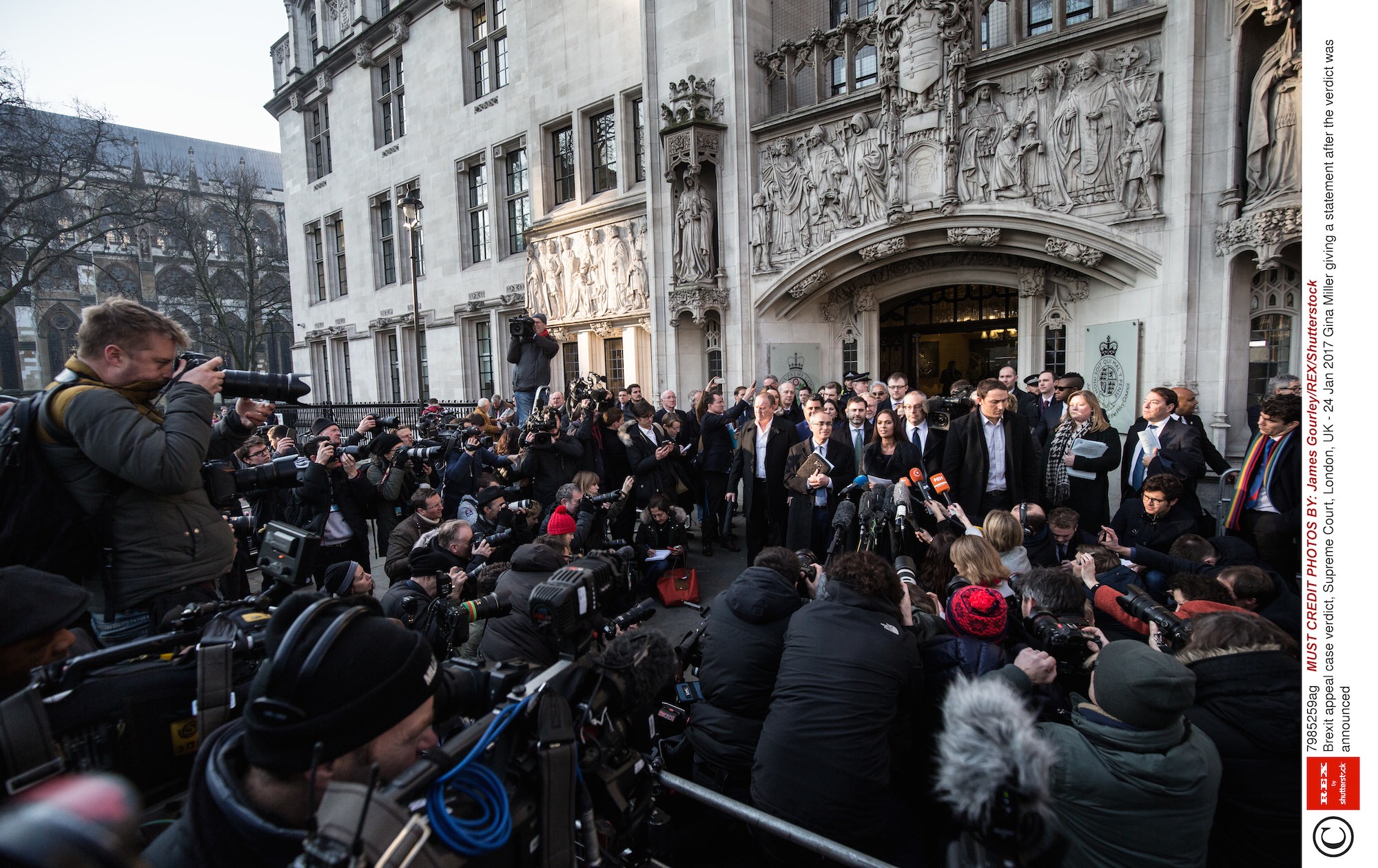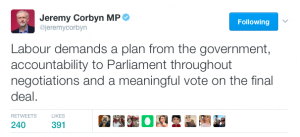The Supreme Court on Tuesday ruled that the government cannot trigger Article 50 to begin the formal process of leaving the European Union without parliamentary approval.
Announcing the judgment, Supreme Court president Lord Neuberger said: “By a majority of eight to three, the Supreme Court today rules that the Government cannot trigger Article 50 without an Act of Parliament authorising it to do so.”
The government was taken to court by campaigners including investment manager Gina Miller, who argued that denying parliament a vote was unconstitutional. In November, the High Court ruled in Miller’s favour, prompting the government to appeal to the Supreme Court.
Despite losing the appeal, the government said it would deliver Brexit as planned.
“This does not change the fact that the UK will be leaving the European Union,” Brexit secretary David Davis said in a statement which promised the government would swiftly introduce legislation to enable it to invoke Article 50.
In reaction to the decision Labour leader Jeremy Corbyn tweeted that his party “will not frustrate the process”. He added that parliament should be consulted throughout the negotiations.
The judges who delivered November’s High Court verdict received negative coverage from the press, with one paper calling them the “enemy of the people”.
Writing on his website a day before the Supreme Court verdict, the Conservative MP for Kingston and Surbiton, James Berry, condemned such personal attacks. “Whatever the Supreme Court Justices decide tomorrow, their decision deserves respect, not vitriolic personal criticism. I wish to condemn in clear terms any personal abuse directed at the judiciary or the lawyers involved in the case,” he said.
The Supreme Court also said that the government does not need permission from the devolved authorities of Scotland, Northern Ireland and Wales to proceed with its Brexit plans.






